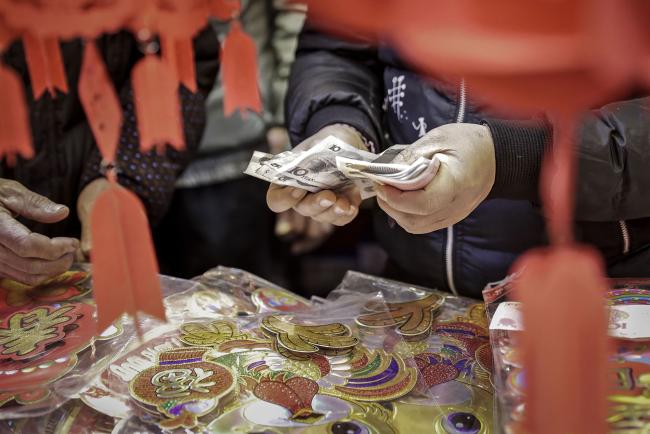(Bloomberg) -- In the fraught history of Chinese currency policy, a new chapter could be looming this year as authorities consider the consequences of a yuan that’s testing its strongest levels since mid-2015.
After successfully shutting off potentially destabilizing capital outflows and putting a floor under the yuan, policy makers may now have the luxury of looking at relaxing some of the strictures on domestic money. But China watchers warn that any moves are likely to be gradual and calibrated, given the turmoil of 2015 -- when a sliding yuan spooked global markets.
"Big changes in the capital account are less likely, but some slight easing can be expected," said Xia Le, chief Asia economist at Banco Bilbao Vizcaya Argentaria SA in Hong Kong. Policy makers have put a priority on deleveraging, "which is likely to cause instability," he said -- all the more reason to go cautiously on cross-border flows.
While no officials have clearly signaled an intent to relax controls, recent comments and moves hint at the potential for modification of the one-way capital account opening that China has been pursuing since 2016 -- in which it has encouraged inflows but not outflows.
- The State Administration of Foreign Exchange, which oversees foreign-exchange reserves, said last week it sees more balanced capital flows
- Pan Gongsheng, the director of SAFE, said last week that there will be a "neutral" policy in managing cross-border transactions
- In a free trade zone in Shenzhen, near Hong Kong, officials have revived a program allowing for overseas investment that was suspended in 2015
- Authorities in January removed a "counter-cyclical" factor from the daily fixing of the yuan, a move seen to let the market take more of a role
Any return to the sustained appreciation the yuan saw over the decade to 2015 could hurt Chinese exporters’ profits -- just as big companies face challenges from the leadership’s drive to reduce excess credit and cut back polluting industries. Yet the disorderly moves that followed 2015 efforts to promote international use of the yuan serve as a warning against any sudden lifting of barriers to capital outflows.
"A degree of undershooting" in the dollar against the yuan "is probably necessary to provide reformists in China’s policy circle a window of opportunity to lobby for more capital account liberalization," analysts led by David Bloom, global head of currency strategy at HSBC Holdings Plc (LON:HSBA) in London, wrote in a recent report.
Authorities in recent weeks have reinforced the stance that they won’t allow an unbridled export of domestic funds -- publishing this month a list of sectors that its companies will be restricted from investing in abroad. Officials also emphasized that they will continue to crack down on improper trade invoices, which have been used to squirrel money abroad.
But allowing greater outflows in officially sanctioned channels, such as investing money with authorized foreign asset managers, could help bolster two-way capital flows that restrain gains in the yuan. Such moves could also ease any concerns among foreign investors and financial institutions looking at entering the Chinese market about their ability to withdraw funds from the country.
"What they’ve been doing in the last two years is to encourage inflows, but restrict outflows in order to defend the currency," said Shen Jianguang, chief Asia economist at Mizuho Securities Asia Ltd in Hong Kong. "But now the situation has reversed, so they can allow more capital outflows while keeping inflows more liberal."
Among potential steps Chinese authorities could take, as cited by analysts:
- Ease controls on multinational companies’ cross-border yuan transfers, after the practice known as cash pooling was restricted to curb outflows
- Accelerate the approvals of outflows related to the so-called real economy
- Liberalize portfolio outflows, such as through the Qualified Domestic Institutional Investor program -- a scheme that allows Chinese to buy overseas securities via mutual funds, but quotas have been frozen since 2015
- Impose higher requirements for domestic companies to raise funds overseas, which would help limit capital inflows due to borrowers swapping back into yuan
To contact Bloomberg News staff for this story: Yinan Zhao in Beijing at yzhao300@bloomberg.net, Kana Nishizawa in Hong Kong at knishizawa5@bloomberg.net, Justina Lee in Hong Kong at jlee1489@bloomberg.net.
To contact the editors responsible for this story: Christopher Anstey at canstey@bloomberg.net, Jeffrey Black at jblack25@bloomberg.net.
©2018 Bloomberg L.P.
